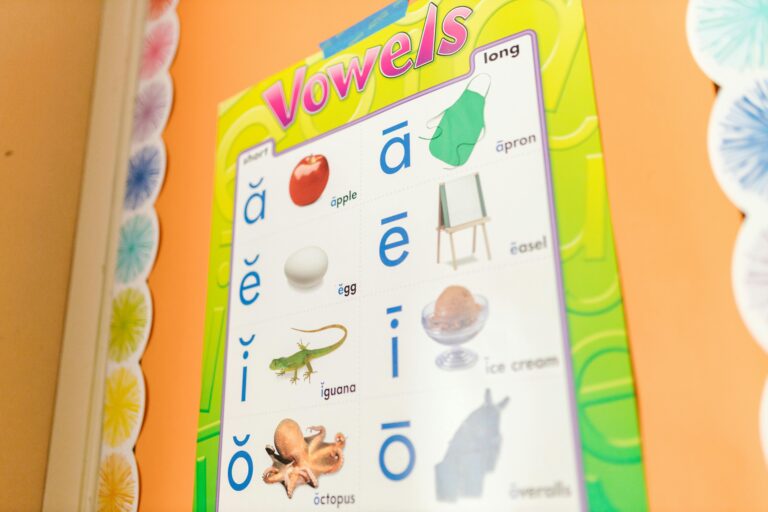English Days of the Week (and Related Vocabulary)

Talking about the English days of the week seems simple, but getting it wrong can cause some serious scheduling confusion.
In this post, we will tell you everything you need to know about the English days of the week. Specifically, we will talk about origins, abbreviations, related expressions, vocabulary and how to use the days of the week (among other tips).
Note that the etymologies (word origins) for all words below are based on this Live Science article and confirmed with the Merriam-Webster dictionary.
Download: This blog post is available as a convenient and portable PDF that you can take anywhere. Click here to get a copy. (Download)
English Days of the Week Explained
1. Monday
Abbreviation: Mon.
Origin: You could say that Monday is “The Moon Day.” In Old English, mōna was the name for the moon, and from this we get the name Monday.
Related Expressions: In English, you might hear people talking about a “Monday morning feeling.” This is a popular idiom that means feeling down about starting a new workweek.
You may also hear someone tell you that they have the “Monday morning blues.” Again, this means they feel tired or annoyed about having to get up early and go back to work. You might want to offer them a cup of coffee!
2. Tuesday
Abbreviation: Tue. or Tues.
Origin: In Ancient Rome, this day of the week was named after Mars, the god of war. This is how we get mardi in French or martes in Spanish. But in English, the name comes from the Norse god Tyr (also spelled Tiw or Tiu).
Related Expressions: If somebody warns you that you can say something “from here to next Tuesday,” they mean that even if you keep repeating yourself, that somebody will not listen. For example, “You can tell Max from here to next Tuesday that he needs to wash his car, but he will never do it.”
3. Wednesday
Abbreviation: Wed.
Origin: This is one of the stranger days of the week. Rather than being pronounced “Wed-nes-day” as the spelling suggests, you pronounce it as “wens-day.” In English, this day is named after Woden, the Norse god of wisdom. You can use this to help you remember because “wise” and “Wednesday” begin with the same letter.
Related Expressions: Sometimes English speakers will refer to Wednesday as “Hump Day.” This is a common piece of slang that refers to Wednesday being the “hump” or the middle point of the workweek. For example, somebody might say, “It is Hump Day again, but that means it will be Saturday in two days.”
4. Thursday
Abbreviation: Thu., Thur. or Thurs.
Origin: If you have seen any of the Marvel “Avengers” films, you know the superhero Thor and his magic hammer. He is the powerful Norse god of thunder, and also where we get the word “Thursday” (“Thor’s day”) from.
Related Expressions: A popular hashtag English speakers use on Instagram is #throwbackthursday. In English, a “throwback” reminds you of something that happened in your past. So, this hashtag is used to share memories such as holiday photos or baby pictures.
5. Friday
Abbreviation: Fri.
Origin: Friday is a chance to unwind (relax) after a week of work, go out with friends and spend time with family. It is therefore fitting (appropriate) that its English name comes from the Norse goddess Frigg, who represented love, marriage and wisdom.
Related Expressions: “That Friday feeling” is a popular English expression. Unlike “Monday morning blues,” it means feeling excited about the end of the workweek.
“Get that Friday feeling” is a phrase you may encounter in advertisements. It means a product is supposed to make you feel the same sense of happiness and excitement on a Friday.
6. Saturday
Abbreviation: Sat.
Origin: Saturday is named after the Roman god Saturn. He was the god of time, but he was also the god of new beginnings. Since Saturday is the day most people relax to prepare for another week ahead, it is appropriate that this day is named after him.
Related Expressions: One expression you will often hear that uses Saturday is “Saturday night fever.” It is not a disease, though: it is the energy and excitement you feel on a Saturday night—especially when you are doing something like partying and dancing.
7. Sunday
Abbreviation: Sun.
Origin: In many cultures and religions, the sun was considered sacred (holy or divine). Since Sunday is also a sacred day in many places, it makes sense that it is called “Sunday” or “day of the sun.”
Related Expressions: If somebody asks you to come dressed in your “Sunday best,” they want you to wear your nicest clothes. Christians often wore their best clothes to church on Sundays, after all.
Perhaps one of the weirdest English expressions is “it will never happen in a month of Sundays.” This does not mean that all the days of that month are Sundays. Rather, this means that something is never, ever going to happen—like a month that only has Sundays!
Useful Vocabulary for Talking About Days of the Week
Now that you know about the days of the week, your next step is to talk about them in relation to each other. I will also discuss a handful of other phrases related to the English days.
- Today — the day you are in right now. If your calendar says that it is currently May 12 and a Friday, you can say “Today is May 12” or “Today is Friday”
- Yesterday — the day before today. Using our last example, yesterday would be May 11 or Thursday
- Tomorrow — the day after today. Again, if today is May 12 and a Friday, then tomorrow is May 13 and a Saturday
- The day after tomorrow — two days after today. So if tomorrow is May 13 and a Saturday, “the day after tomorrow” is May 14 or a Sunday
- Week — a seven-day period
- Weekday — the days from Monday to Friday
- Weekend — Saturday and Sunday
- Midweek — this usually refers to Wednesday, since it is the middle of the weekdays (from Monday to Friday)
- Fortnight
— In British or UK English, this means two weeks from today. If today is May 12, then the fortnight would be May 26
“Fortnight” can also mean two weeks from a certain day. So if you hear someone say something like “Monday fortnight,” that person is referring to the second Monday (or the Monday in two weeks) after that
- Business day — a day when companies are open and operating. Usually, business days are from Monday to Friday, but that may differ depending on the company or country where that company operates
How to Use English Days of the Week
Capitalization
In English we capitalize the first letter of each day of the week. Write them as Monday, Tuesday, Wednesday, Thursday, Friday, Saturday and Sunday. Never write “monday,” “tuesday,” “wednesday,” etc.
Pluralization
To pluralize the days of the week, all you have to do is add “s” to the end of each day. Therefore, you would write “Mondays,” “Tuesdays,” “Wednesdays,” “Thursdays,” “Fridays,” “Saturdays” and “Sundays.”
Articles
Use the definite article “the” to emphasize a certain day within a specific context. For example, you could say “I can visit our parents on the Saturday when I have no work.”
However, do not use “the” if you are talking about a day in a general. For example, you could say “I love Saturdays” or “I have dance classes every Wednesday and Friday.”
Note that we do not use indefinite articles like “a” or “an” with days of the week, they are not considered countable nouns.
Prepositions
- On — used before the day(s) of the week to indicate specific days. You could say “I have a meeting on Friday” or “The game will take place on Saturday”
- From… to, between… and — used to indicate a range of days. For example: “The seminar will take place from Friday to Sunday” and “The restaurant is closed between Sunday and Monday”
- During, throughout — used when talking about longer periods. You could say “I will go to Europe during the week of July 4th” or “I teach karate on Fridays throughout the summer”
- Next, last, this, every — used to indicate past, future or recurring events. For example, “I will start my new job next Monday,” “I enjoyed the concert last Wednesday,” “I will visit my friend this Saturday” or “I walk my dog every Friday”
- After, before, since, until — to indicate time periods relative to a specific day. For example: “After this Friday, I am going to play video games all day,” “The deadline is before Thursday,” “He has been waiting since Monday” and “The activity will continue until Wednesday”
Start of the Week
Fortunately, there are usually only two days considered as the official “start of the week,” depending on where you are or what culture you are in.
Sunday is the start of the week in the United States, Canada and other countries where Sunday is traditionally observed as the Sabbath or day of rest.
Monday is the start of the week in the United Kingdom, Australia and many countries in Europe. This is especially true in places where the workweek starts on Monday.
How to Practice English Days of the Week
Using the English days of the week might take some getting used to. The best way to learn is through practice, so you can start with the tips below.
- Organize your own calendar or diary using the English words for each day. That way, you learn to automatically associate each day of the week with their English counterparts
- Create schedules using websites in English. Some people prefer to plan on paper, but there are plenty of websites in English that can help you create a timetable yourself. For example, you can use a website like Any.do, which lets you organize your calendar and make to-do lists
- Watch native English media. You hear days of the week and related vocabulary all the time when you watch TV or movies. You could try watching them on Netflix, or even on a language learning platform like FluentU.
FluentU takes authentic videos—like music videos, movie trailers, news and inspiring talks—and turns them into personalized language learning lessons.
You can try FluentU for free for 2 weeks. Check out the website or download the iOS app or Android app.
P.S. Click here to take advantage of our current sale! (Expires at the end of this month.)

Practicing is a great way to integrate new vocabulary into your daily life. It can also prepare you for life in an English-speaking country, where knowing the days of the week (and their abbreviations) is an important skill for managing your time.
Master these practical English words and phrases about the days of the week, and feel your confidence grow!
Download: This blog post is available as a convenient and portable PDF that you can take anywhere. Click here to get a copy. (Download)
And One More Thing...
If you like learning English through movies and online media, you should also check out FluentU. FluentU lets you learn English from popular talk shows, catchy music videos and funny commercials, as you can see here:
The FluentU app and website makes it really easy to watch English videos. There are captions that are interactive. That means you can tap on any word to see an image, definition, and useful examples.
For example, when you tap on the word "searching," you see this:
Learn all the vocabulary in any video with quizzes. Swipe left or right to see more examples for the word you’re learning.

FluentU helps you learn fast with useful questions and multiple examples. Learn more.
The best part? FluentU remembers the vocabulary that you’re learning. It gives you extra practice with difficult words—and reminds you when it’s time to review what you’ve learned. You have a truly personalized experience.
Start using the FluentU website on your computer or tablet or, better yet, download the FluentU app from the iTunes or Google Play store. Click here to take advantage of our current sale! (Expires at the end of this month.)











